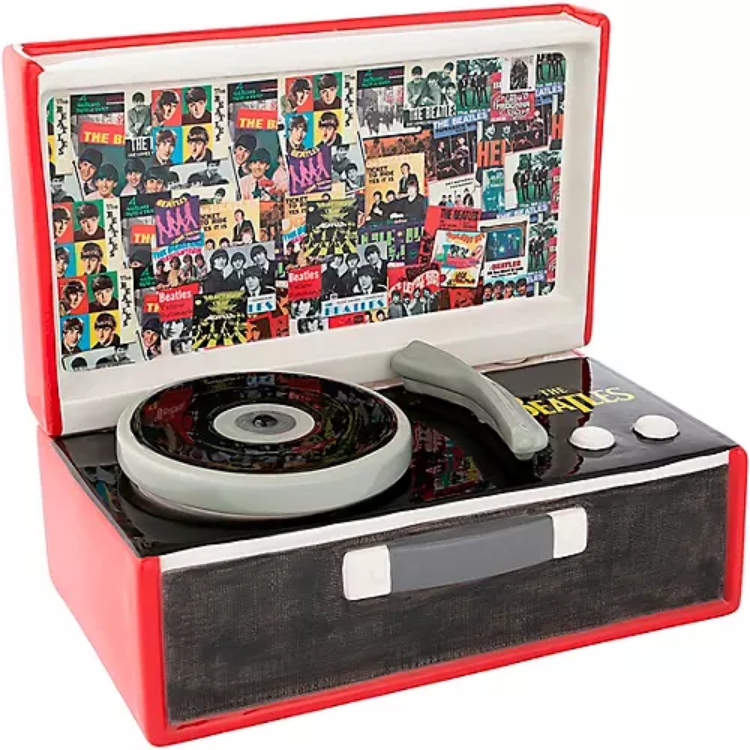- Register
- Log in to Tune-In
- Wishlist (0)
-
Shopping cart
(0)
You have no items in your shopping cart.
Beatles News

An Antiques Roadshow guest was adamant that an item signed by John Lennon and George Harrison is 'not going anywhere' despite its £1,000 to £1,500 value. On Sunday night's episode of the show (December 28) Fiona Bruce presented a showcase of 'unseen treasures' from Trentham Gardens in Staffordshire.
Throughout the show, valuable items included a rare Shamshir sword and a painting by George Leslie Hunter. Plus, Fiona's antiques knowledge was also put to the test with three pieces of pottery with Cubist designs, and ceramics expert John Sandon chatted about his life in antiques.
One man showcased a restaurant bill from his parents dated in 1965, that at first Marc Allum described as 'unremarkable'. It wasn't until the man explained that his parents were joined by some 'interesting people' in the London restaurant - who were none other than John Lennon and George Harrison.
Marc Allum said: "So this looks like a pretty unremarkable restaurant bill from Parks restaurant in Beauchamp Place in London, what's going on with it?"
When explaining the backstory, the man said: "My parents had a very special anniversary dinner, and my father said to the restaurant maître d' details
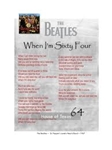
In 2007, Paul McCartney told an interviewer that the Beatles song When I’m Sixty-Four had been on his mind. “Heard it a lot recently – I wonder why?” he said, with a laugh.
Everyone knew the answer: The ex-Beatle had turned 64. And so did I, recently. The song has been on my mind, too. In fact, I can’t stop thinking about it. I sing it in the shower, whistle it as I walk to work, and hum it on my way home. I even played it for my students in class.
They weren’t impressed. The song is about old age, which is something that young people usually don’t think about. And why should they, really? When I’m Sixty-Four reminds us about how much we get wrong when we imagine aging. It’s probably good to put it out of our minds, as best we can.
Mr. McCartney composed the song’s tune on his father’s piano when he was a teenager. His father, Jim McCartney, was a jazz trumpeter who took Paul to big-band shows. The melody has a jaunty cabaret sound. But Mr. McCartney didn’t add words to it until much later, around the time his dad turned 64; it was recorded in 1967 for Sgt. Pepper’s Lonely Hearts Club Band. Mr. McCartney was only details
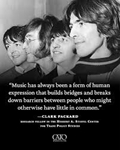
In 2026, the 60th anniversary of The Beatles' first compilation of old hits will be celebrated. A Collection of Beatles Oldies (But Goldies!), released for Christmas in 1966, aimed to satisfy the insatiable appetite of fans frustrated by the gap between the releases of Revolver (August 1966) and Sgt. Pepper's Lonely Hearts Club Band (June 1967). The group still had three good years ahead. Even before their break-up, the respectable sales of this premature best-of hinted at the quartet's ability to perpetuate itself beyond its own demise, which was officially announced by Paul McCartney on April 10, 1970.
Since then, from compilations to remixes, from archive discoveries to documentaries, The Beatles, their music, and their legend have become an inexhaustible source of products designed to fuel nostalgia. Logic would suggest that this seam should be running dry – after all, the band's generation, the baby boomers, is nearing extinction, and nostalgia implies having experienced what one now misses.
But that is without counting the digital age and its ability to blur the boundaries of reality. The constant bombardment of Beatles music and footage – from the release of the 1973 compilations (the "blue" a details

The Beatles, the famous British rock band formed in 1960, have become one of the most revered and successful musical acts in history. Their classic hits such as "Here Comes The Sun", "I Want To Hold Your Hand", and "All You Need Is Love" helped the Fab Four to change the face of popular music forever. As many ardent fans know, some of their most famous songs have interesting backstories. One such song, written by George Harrison, could have been one of The Beatles' biggest hits, but instead it became part of Harrison's solo discovery, and the reason why is quite intriguing.
As ardent music fans will know, Frank Sinatra had a love-hate relationship and opinion when it came to The Beatles. For example, in a press release for his 1965 released album A Man and His Music, Sinatra didn’t hold back when it came to criticizing the British band and their new-age sound, choosing instead to prop up his own music, “If you happen to be tired of kid singers wearing mops of hair thick enough to hide a crate of melons…it should be refreshing.” However, at the same time, he also begrudgingly gave the group their much-deserved props when the moment called for it.
Case in point, Sinatra praised the George details
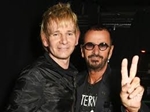
Shunning The Beatles seems like almost an impossible task, especially given how inescapable their music, history, and cultural presence have been since the 1960s. Yet Zak Starkey, the son of Ringo Starr, recently admitted he deliberately avoided listening to the Fab Four until he was well into his twenties.
During an interview with Q1043 New York, the 60-year-old Starkey, who is an exceptionally talented drummer in his own right (having played with the likes of The Who, Oasis, and Johnny Marr, among others), offered up this surprising revelation.
"I'll be honest, when I was a kid, The Beatles were in my way," Starkey said (transcribed by Ultimate Guitar). "I was in groups from a really young age, and I was getting press attention, but they were only paying me attention, and they weren't paying the rest of the band attention." "And I got a bit resentful of this. And that sort of got me into a place where I sort of shunned The Beatles, for a long time. A few people say that's why I have an identity of my own."
But as previously mentioned, finding his own identity on the drum kit proved exceptionally beneficial, leading to a gig with The Who from 1996 through 2025. A band which he was details

We know he’s a fantastic songwriter, dynamic singer of bashers and ballads, and top-of-the-line bassist. But casual fans might not realize that Paul McCartney can play a wide variety of instruments when called upon to do so.
Occasionally, McCartney has even taken the initiative to tackle a song (or even an entire album) all on his own. These four outstanding tracks feature nobody but Macca, who makes for a formidable one-man band. “Maybe I’m Amazed”
McCartney wasn’t really intending to do a solo album, at least not initially, when he headed out to his barn and started making music in his home studio in 1969/1970. He was mostly trying to shake the bad feelings of The Beatles’ breakup, which had occurred but hadn’t yet been announced. The one song that McCartney took into Abbey Road studios was “Maybe I’m Amazed”, perhaps sensing that it needed that professional studio touch. Macca offers several instrumental flourishes on the track, as if it were a band where each member grabs center stage for a moment. Ultimately, the spotlight is on the emotionally potent song and Paul’s stellar, all-in lead vocal performance.
“Every Night&r
details

"The greatest pop record ever made. A record that never dates, because it lives outside time”: How The Beatles created Strawberry Fields Forever – the experimental masterpiece that John Lennon regarded as the best song he ever wrote for the band.
Lennon once described Strawberry Fields Forever as “one of the few true songs I ever wrote”, adding that, along with Help!, “they were the ones I really wrote from experience and not projecting myself into a situation and writing a nice story about it”.
Strawberry Fields Forever is quite simply a masterpiece, a poignant, heartfelt song that bridges the innocence of Lennon’s post-War childhood with the kaleidoscopic, heady sensation of ’60s psychedelia.
It is also a landmark moment in the rich back catalogue of The Beatles. Like everything within the exhaustively chronicled career of The Beatles, there's no shortage of opinions on when exactly John Lennon first came up with the germ of Strawberry Fields Forever.
Forums were abuzz in late 2024, when a clip in the Beatles ’64 documentary showed Lennon in a New York hotel room at the height of Beatlemania playing what certainly sounds like the ope details

During an interview on Stephen Colbert , former Beatle Paul McCartney Nancy Shevell went undercover to a movie theater to watch Yesterday , a film that imagines a world without the band.
“It was really fun. We were in the back row, and someone in the movie says, ‘Paul McCartney, the greatest songwriter in history.’ I had to laugh. It was really cool. We wanted to see the movie with the people, not with the studio executives. I thought it was great,” he said.
He also confessed to constantly dreaming about John Lennon , his friend and former bandmate. "When you have such a close and deep relationship with someone, for so long, sometimes that person can visit you in your dreams. I love when that happens," he confessed.
McCartney also commented a bit on his relationship with the musician, revealing that he felt a strong connection with Lennon who, like him, lost his mother very early. “We both knew that feeling. I never thought it affected my music, until someone told me that 'Yesterday' could be about my mother. 'Why did she have to go? / I don't know / She didn't tell me.' I didn't write it with that intention, but maybe it is.”
At the end of the interview, the s details

The Beatles did not find lasting peace in India, but they found something more enduring: a body of work that captured uncertainty without resolving it.
In February of 1968, at the height of their fame, the Beatles boarded a plane bound for India. They were the most recognisable faces on the planet, their music saturating radios, bedrooms, and public life, yet they arrived in Rishikesh seeking something stubbornly intangible.
Success had delivered them everything it promised and very little that it could sustain. The world expected spectacle; the four young men wanted silence. What they found instead was a brief, strange interlude—part retreat, part unravelling—that would leave behind some of the most enduring music of the twentieth century and quietly mark the beginning of the end.
Their destination was an ashram perched above the Ganges, run by Maharishi Mahesh Yogi, whose teachings on transcendental meditation had begun to circulate through Western “counterculture.” India, to the Beatles, existed both as a real place and as a projection—a landscape onto which exhaustion, hope, and dissatisfaction could be mapped.
The Western press followed eagerly, framing the jour details

Val Barone is a journalist working remotely and specializing in music features. A passionate music lover, she keeps up to date on the latest developments in the entertainment world, and in the past five years, she's written for several sites, including ScreenRant, MovieWeb, TheThings, and Far Out Magazine. She covers breaking news in the music world and loves sharing stories about the classic rock musicians she grew up listening to. As a Gen Z writer, she offers a fresh perspective on the events that change music history.
In 1967, The Beatles were at the height of their creativity. They had stopped touring, and their last release from 1966, Revolver, was their most ambitious album. At least, until the album that changed everything. Sgt. Pepper's Lonely Hearts Club Band was revolutionary from the start, considered the first concept album. Just the cover art drove people into a frenzy in the '60s, and each song pulls the listener deeper into the world the Fab Four crafted. The last song, "A Day In The Life," is the perfect culmination for the album of the decade, its psychedelic themes, orchestral arrangements, and pop culture references perfectly capturing the music revolution The Beatles were leading at the time. & details
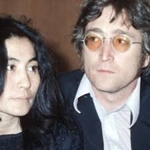
Yoko Ono has been reduced, in the eyes of many Beatles fans, to a punchline. She’s the “reason for the band’s breakup”—a wedge between the once iron-clad John Lennon-Paul McCartney partnership. That’s, of course, obscuring the group’s numerous other issues among themselves. She’s an easy scapegoat for one of the most disappointing band breakups of all time. Anyone who came between a pair of friends from the late ’60s on has been branded a “Yoko”.
Ono’s unpopularity with fans was likely always a source of struggle for the artist, but it only got worse after Lennon’s death in 1980. Ono reportedly faced unthinkable bullying from grieving Beatles fans, who seemingly forgot she felt all they were feeling, albeit with a personal angle.
There was one Lennon song that managed to comfort Ono in the wake of her husband’s death and public backlash, “Grow Old With Me.”
“Grow Old With Me”
We can’t think of a more heartbreaking choice of song for Ono to listen to in the aftermath of Lennon’s murder than “Grow Old With Me.” Grow old along with me / The best is yet to be / When our details

Paul McCartney has landed on top the Billboard Boxscore for November thanks to his Got Back tour.
The Beatles legend tops the chart after bringing in $51.7 million from sales of 150,000 tickets for 11 shows. The latest leg of the tour kicked off Sept. 29 in Palm Desert, California, and wrapped Nov. 25 in Chicago.
This is the second time McCartney’s Got Back tour earned him the #1 spot on the list. The tour previously topped the Billboard Boxscore in May of 2022.
McCartney’s Got Back tour, which initially launched in April of 2022 and has included shows in 2023, 2024 and 2025, has brought $410.7 million overall, with 2.4 million tickets sold.
In other news … The Beatles are helping fans get in the Christmas spirit with the YouTube release of The Beatles Holiday Yule Log (Merry Crimble) featuring classic Beatles tracks. The video features an image of roaring fire, with Christmas stockings hung on the mantel for McCartney, George Harrison, John Lennon and Ringo Starr. There’s also a turntable with pictures of the band members and presents wrapped in Beatles wrapping paper.
According to the description, “this video is made to be left on all holiday long, whether details
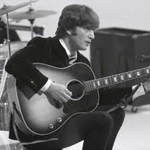
Lennon embedded subtle hints about leaving the Beatles in songs like “Glass Onion.”
He said, “I had to either be married to them [the band] or Yoko, and I chose Yoko.”
McCartney later stated Yoko was not to blame; the group was already breaking up.
Long before the Beatles’ official split in 1970, John Lennon was dropping subtle clues that he was ready to walk away.
In “Glass Onion” from the 1968 White Album, Lennon references a number of the Fab Four’s recent hits. The lyrics drop nods to Beatles classics like “Strawberry Fields Forever,” “Lady Madonna,” “Fool on the Hill” and “Fixing a Hole.”
Lennon also revisits the Magical Mystery Tour classic “I Am the Walrus,” with the line, “I told you about the walrus and me, man. You know that we’re as close as can be, man. Well, here’s another clue for you all. The walrus was Paul.”
In discussing the song, Lennon noted that he intentionally made the references confusing, challenging listeners to dig deeper for hidden meaning in the track.
“I threw the line in—’the Walrus was Paul’& details

The Beatles may have broken up in 1970, but the band continues to live on and 2025 was no exception. Fans of the band got a new look at their 1990s Anthology project with reissues of the documentary series, music and book.
-Disney+ debuted a restored and remastered version of the Anthology documentary series, which aired on ABC in 1995, with the eight-part series expanded to nine episodes. In addition, the music was reissued as The Anthology Collection, a box set featuring the first three Anthology albums, along with a new fourth edition, featuring 13 previously unreleased recordings. Anthology 4 was also released as a standalone.
-A 25th anniversary edition of The Beatles Anthology book, featuring more than 1,300 photos, documents, artwork and memorabilia, was also released.
-This year also brought casting news for Sam Mendes‘ four Beatles films, The Beatles – A Four-Film Cinematic Event, due out in April 2028. The project, in which each film will be told from the point of view of a different band member, will star Harris Dickinson as John Lennon, Paul Mescal as Paul McCartney, Barry Keoghan as Ringo Starr and Joseph Quinn as George Harrison.
Among this year’s other Beatles hig details

In the latest installment of his “You Gave Me the Answer” Q&A feature, Paul McCartney reflects on his eventful 2025 while also looking ahead to what he has in store for 2026.
As part of the feature, a fan named Sam asked the Beatles legend what he’s looking forward to the most in 2026.
“My new album!” McCartney declared. “We’re just starting to think about how to put that together.”
Sir Paul also revealed that he’s looking forward to the wide release of the Morgan Neville-directed documentary Man on the Run, “and all the activity that comes along with that.”
As previously reported, Man on the Run focuses on McCartney’s life and career following The Beatles’ breakup. The documentary focuses on Paul’s years with his post-Fab Four band Wings. Man on the Run will get its TV premiere on Amazon’s Prime Video streaming service on February 25, 2026.
The 83-year-old rock legend also said he’s excited about his long-in-the-works animated film High in the Clouds finally getting finished.
“High in the Clouds … is being made and we’ve finished up all the recordings of the voca details

